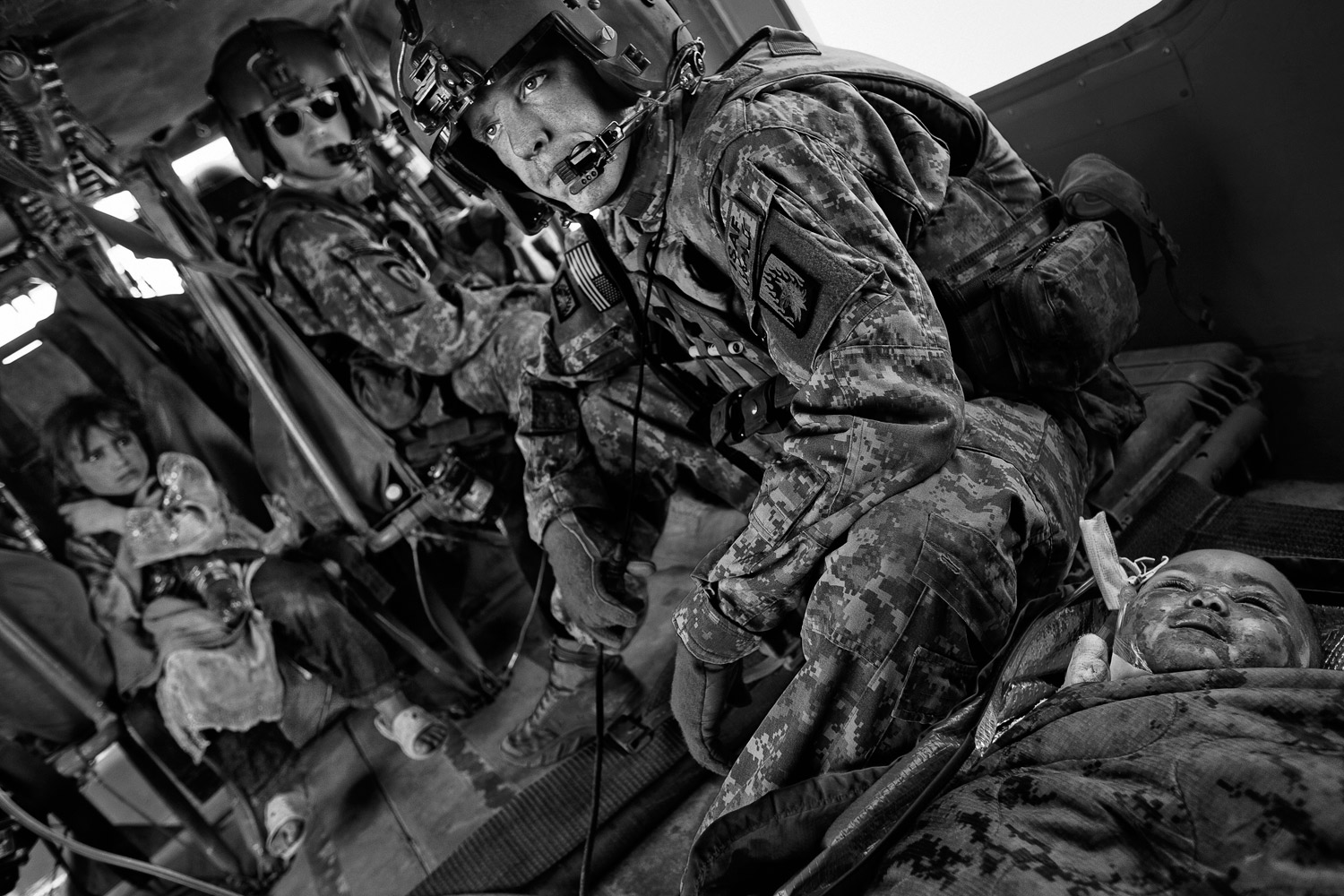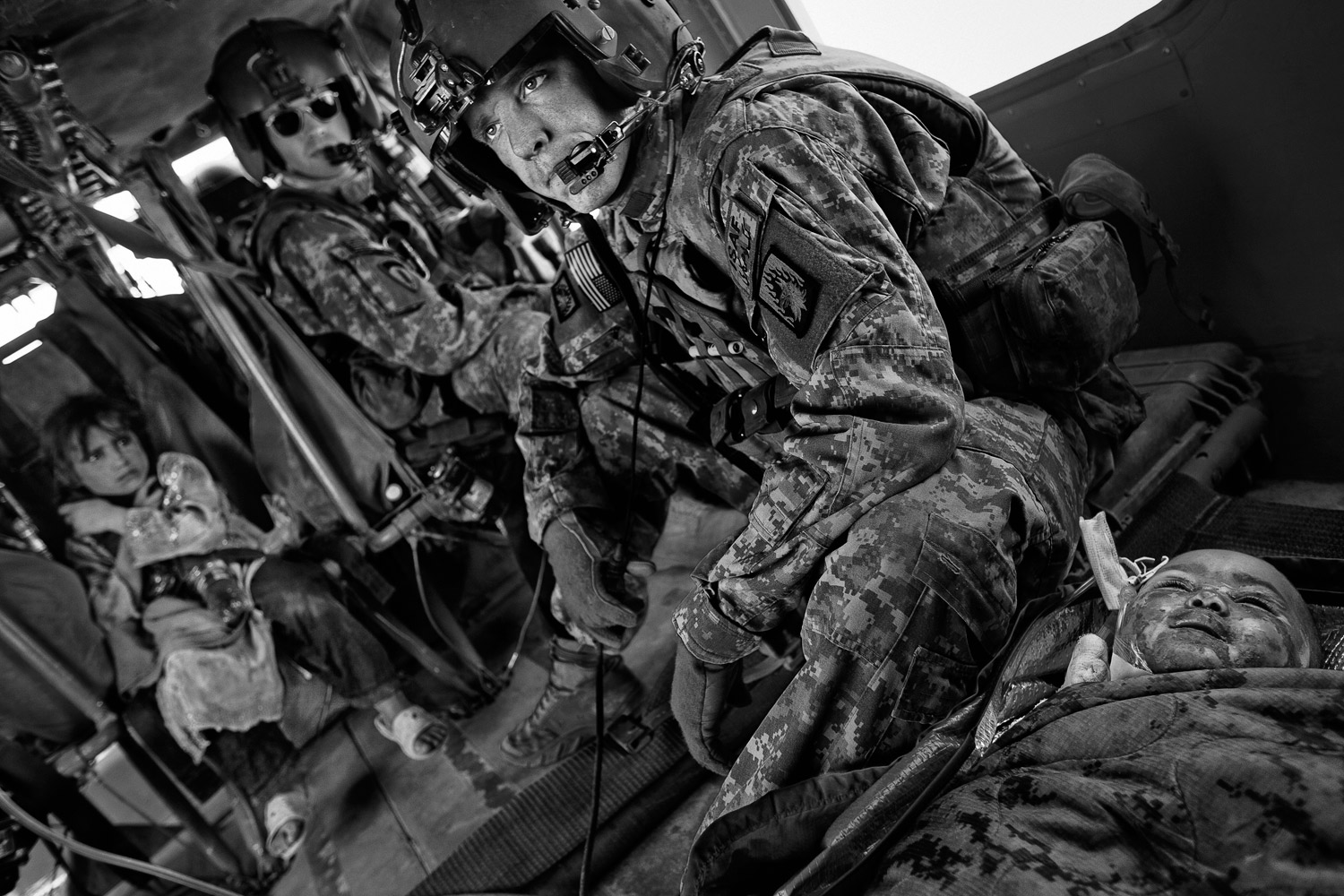
Flight medic Sgt. Billy Raines has witnessed more than his share of the grim consequences of war. When asked to estimate the number of troops he has treated – who had limbs blown off in battle during his two deployments with 1-24 Charlie Company Dustoff (the first in Iraq, currently in Afghanistan) – he answered “many dozens”. Twenty-nine years old, the father of three girls, 10, 9 and 6, he has somehow managed not to become desensitized to trauma and suffering. He has seen, repeatedly, how a shaped IED can take out an armored fighting vehicle and all the men inside it; how it forms a projectile of molten copper that cuts right through steel plate, shredding flak vests and Kevlar helmets. He’s seen a tractor carrying 10 children blasted to bits by a “normal” IED – no survivors. He’s flown missions where instead of administering life support he’s collected body parts.
Yet, after all that, one four-year-old Afghan girl who had been burned, not in battle, but in an accident at home, etched a mask of resignation and pity on his young face and transformed his eyes into laser beams of compassion. In sharing what had been on his mind at that moment, he allowed that his thoughts were of her future; how she would probably never fully recover from the third degree burns that claimed 60% of her body, how limited her mobility would be, how the pain she had experienced during the three days before help arrived must have been unbearable, how much pain she would continue to experience – how she would look for the rest of her life.
It would be natural for any parent to project thoughts of his own children into the scenario, but that was not what caused Sgt. Raines’ look of concern. He had enough presence of mind to know that his daughters were ok; they were safe at home and well cared for by his wife, and he was thankful for that. Cruelty and vengeance can sometimes corrupt the spirit of those engaged at the sharp end of a war. But neither those harsh emotions nor compassion-fatigue had infected Sgt. Raines’ heart or his mind. That he still cared made him more effective at his job and underlines the ancient wisdom that recognizes (beyond skill and courage and the ability to physically endure) compassion as one of the highest attributes of a true warrior.
James Nachtwey is a TIME contract photographer, documenting wars, conflicts and critical social issues.

More Must-Reads from TIME
- Donald Trump Is TIME's 2024 Person of the Year
- Why We Chose Trump as Person of the Year
- Is Intermittent Fasting Good or Bad for You?
- The 100 Must-Read Books of 2024
- The 20 Best Christmas TV Episodes
- Column: If Optimism Feels Ridiculous Now, Try Hope
- The Future of Climate Action Is Trade Policy
- Merle Bombardieri Is Helping People Make the Baby Decision
Contact us at letters@time.com